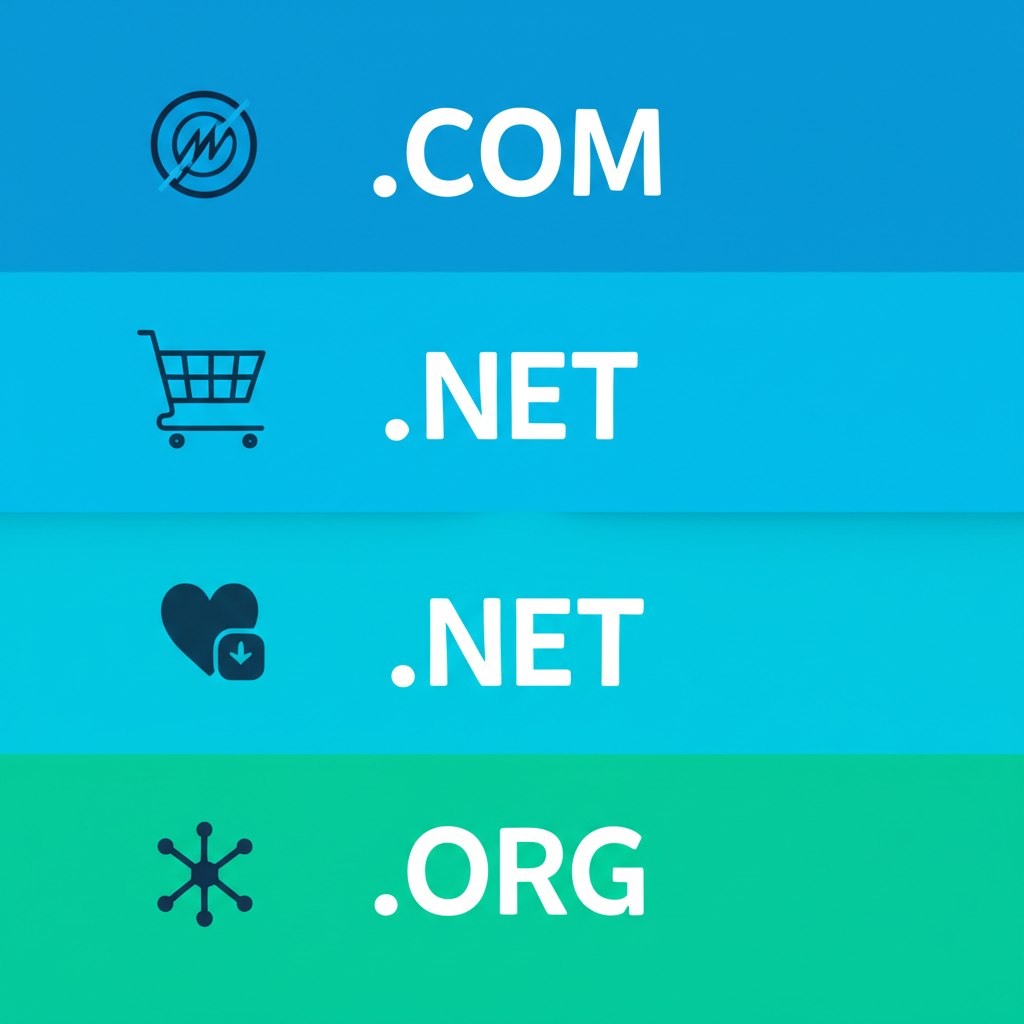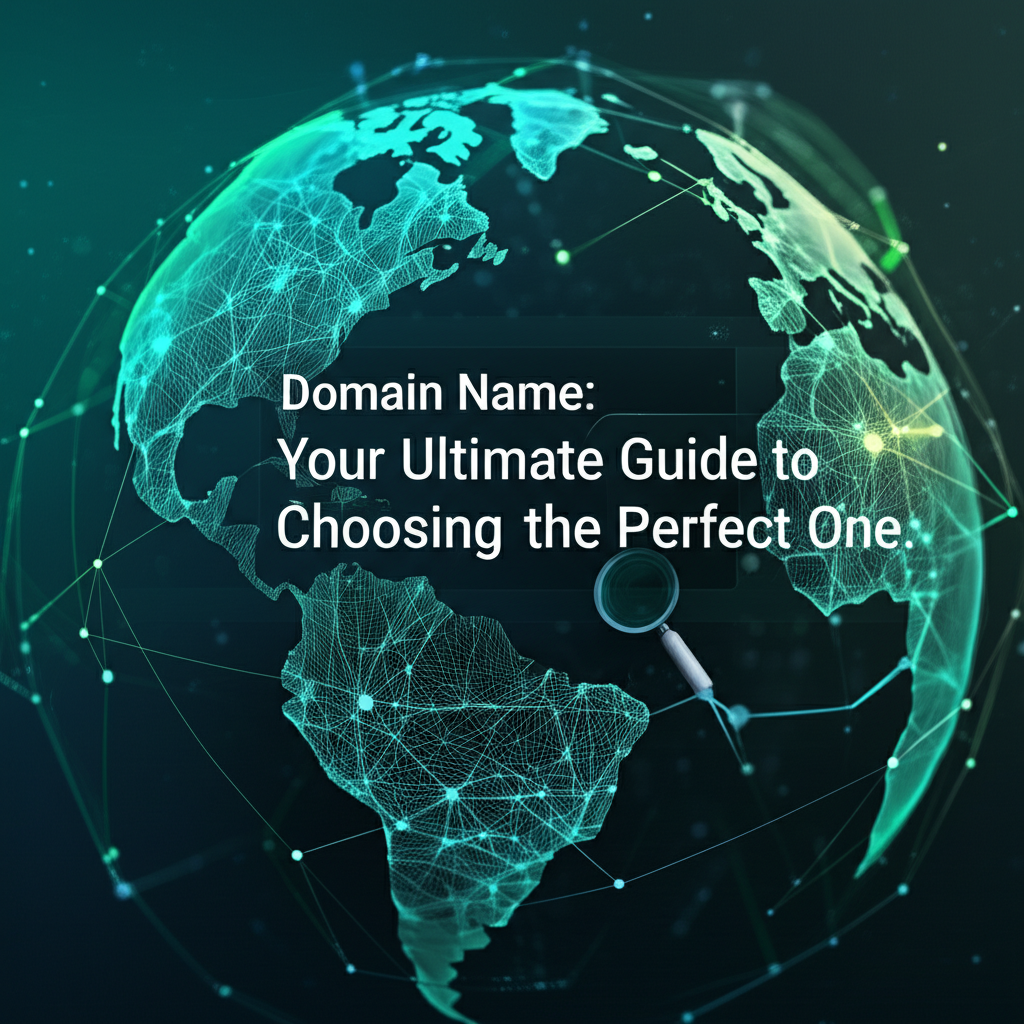- Understanding the History of .COM, .NET, and .ORG
- .COM vs .NET vs .ORG: A Detailed Comparison
- .COM: The King of Domains
- .NET: The Reliable Alternative
- .ORG: The Voice of Non-Profits
- SEO Implications: Does Your TLD Matter?
- Making the Right Choice for Your Domain
.COM vs .NET vs .ORG: Choosing the Best Domain
.COM, .NET, and .ORG are the most common top-level domains (TLDs) used across the internet. While they might seem interchangeable, each carries a different connotation and intended purpose. Choosing the right TLD for your website is crucial for establishing credibility, attracting the right audience, and even impacting your search engine optimization (SEO). This article will delve into the nuances of each extension, helping you make an informed decision for your online presence.
Understanding the History of .COM, .NET, and .ORG

Before diving into the specifics of each TLD, let’s briefly explore their origins. Understanding their initial intended purpose provides valuable context for their current usage.
.COM (Commercial): Originally intended for commercial entities, .COM quickly became the most popular TLD, largely due to the dot-com boom of the late 1990s. Today, .COM remains the default choice for most businesses, regardless of their specific purpose.
.NET (Network): Initially designated for organizations involved in networking technologies, such as internet service providers (ISPs) and data centers, .NET has broadened its scope over time. It’s now often used by tech-related businesses or as an alternative when the desired .COM domain is unavailable.
.ORG (Organization): Designed for non-profit organizations, .ORG retains its association with charities, foundations, and other non-governmental organizations (NGOs). This TLD lends an air of trustworthiness and community focus.
.COM vs .NET vs .ORG: A Detailed Comparison
Now, let’s explore the key differences and considerations when choosing between these three popular TLDs.
.COM: The King of Domains
Advantages: The most recognizable and trusted TLD, often the first choice for users when typing a web address. It’s associated with established businesses and lends an air of professionalism. Often preferred for SEO purposes due to its widespread usage.
Disadvantages: High demand means many .COM domains are already taken. Can be more expensive to acquire than other TLDs, especially for popular keywords.
Best for: Commercial businesses, e-commerce websites, online stores, and any organization seeking a broad audience.
.NET: The Reliable Alternative
Advantages: A good option when the desired .COM domain is unavailable. Still maintains a level of credibility and professionalism, particularly suitable for tech-related businesses. Generally less expensive than .COM domains.
Disadvantages: Not as instantly recognizable as .COM. Can sometimes be confused with network infrastructure providers. May not be the best choice for non-tech businesses aiming for maximum brand recognition.
Best for: Technology companies, software developers, web hosting providers, and businesses whose desired .COM domain is unavailable. Also suitable for online communities and platforms.
.ORG: The Voice of Non-Profits
Advantages: Immediately identifies the website as a non-profit organization. Conveys trustworthiness and a sense of community purpose. Can be a powerful tool for fundraising and attracting volunteers.
Disadvantages: Not suitable for for-profit businesses. Using .ORG for commercial purposes can damage credibility and confuse potential donors. May not be the best choice for organizations seeking to generate revenue through sales.
Best for: Non-profit organizations, charities, foundations, NGOs, and community groups.
SEO Implications: Does Your TLD Matter?
While Google maintains that the TLD itself doesn’t significantly impact ranking, the choice of TLD can indirectly influence SEO. For example, a .COM domain might benefit from higher click-through rates due to its familiarity, which can positively affect rankings. Similarly, using a .ORG domain when targeting a specific niche audience interested in non-profit work may provide relevance signals to search engines. Ultimately, creating high-quality content and implementing sound SEO practices are far more impactful than the TLD alone.
Making the Right Choice for Your Domain
Choosing the right TLD is a critical decision for your online presence. Consider your target audience, the purpose of your website, and the overall image you want to project. While .COM remains the dominant choice for businesses, .NET and .ORG offer valuable alternatives for specific purposes. By understanding the nuances of each TLD, you can make an informed decision that sets your website up for success. Don’t hesitate to brainstorm several options and check their availability before making your final choice. This careful consideration will help you establish a strong online identity and connect with your target audience effectively.















Leave a Reply